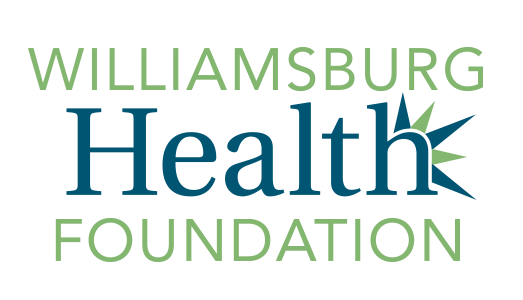On Monday, June 1, 2020, the Williamsburg Health Foundation’s (WHF) Board of Trustees approved $3,453,500 dollars in grants.
“Whether or not there is a health emergency like COVID-19, organizations supported by Williamsburg Health Foundation work every single day to make our community healthier,” said president and CEO, Carol L. Sale. “Our grants remain consistent with our vision of individuals making healthy choices in a community with health opportunity for all.”
“Many of our grantee partners are vulnerable to the economic downturn. Donors may not have resources to share with nonprofit agencies in the same way they have in the past few years. As always, this Foundation is proud that through our grants, we can provide support of staff salaries and operations at these organizations,” said Sale.
In April, Williamsburg Health Foundation unrestricted millions of dollars of already-awarded grants to allow agencies the flexibility to pivot their operations as needed. “We have great faith in our partner agencies,” explained Sale. “They know best how to manage their money in a crisis.”
“We have been working closely with our grantee partners to make sure they have what they need during this crisis,” said Allison Brody, director of community engagement. “They tell us the best thing we can do for them in both the short- and long-term is to provide consistent and transparent grant-making.”
In this first grant round of 2020, WHF granted $575,000 for the provision of behavioral healthcare, $850,000 for advanced primary care and chronic disease management, $133,500 for medication access and other health services, $697,000 for school-based wellness, and $720,000 for two-generational, family-centered services. A complete list of grants and agencies is appended here.
“In the past few months, our staff and trustees have been truly inspired by our grantee partners and their creativity, adaptability, and collaborative spirit. We have seen clinical staff meeting patients in parking lots when telemedicine was not enough. We have seen agencies serving in new ways. For example, the Arc of Greater Williamsburg has used their vans to collect food from food drives and deliver emergency food to homebound individuals. Those vans are typically used to transport adults with disabilities,” said Brody.
“Our staff has been hard at work, during this crisis to provide collaborative spaces online so agencies can quickly learn from each other and meet emergent community challenges in larger, systematic ways. We are a collaborative community; we work best when we all work together,” said Sale.
Since its inception, the Williamsburg Health Foundation has granted 89 million dollars to improve the health of the Williamsburg community. For information on grants from the Williamsburg Health Foundation, including how to apply for a grant, visit williamsburghealthfoundation.org/grants-before-applying
